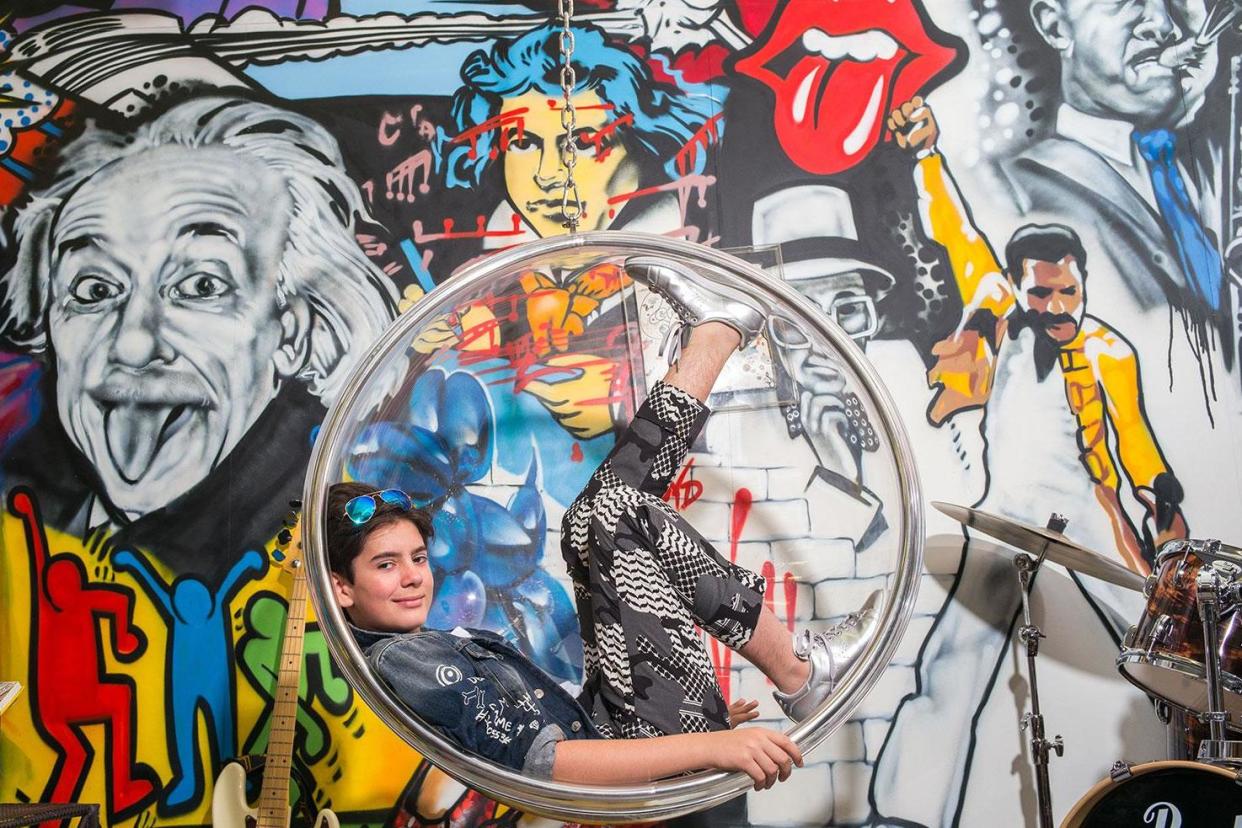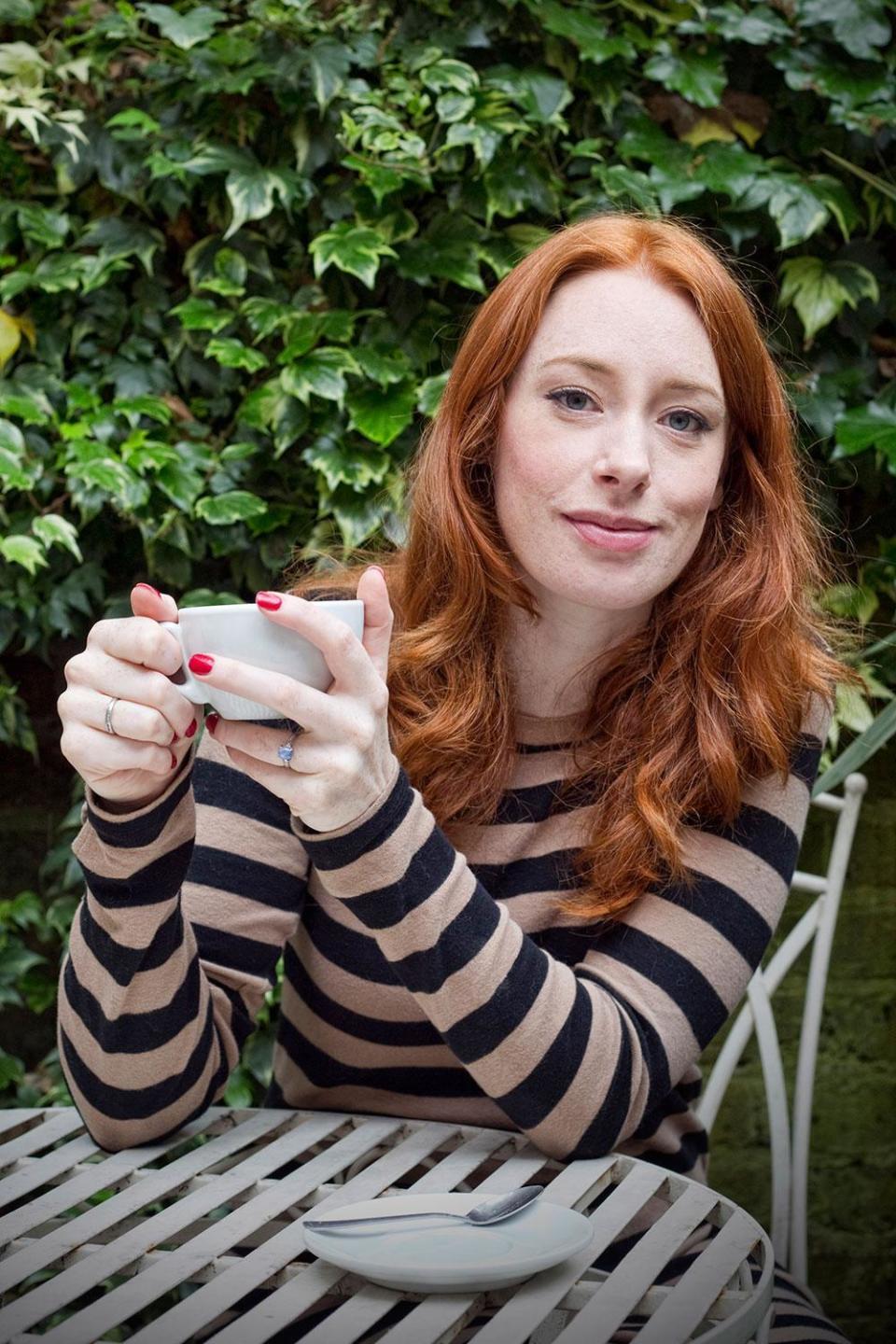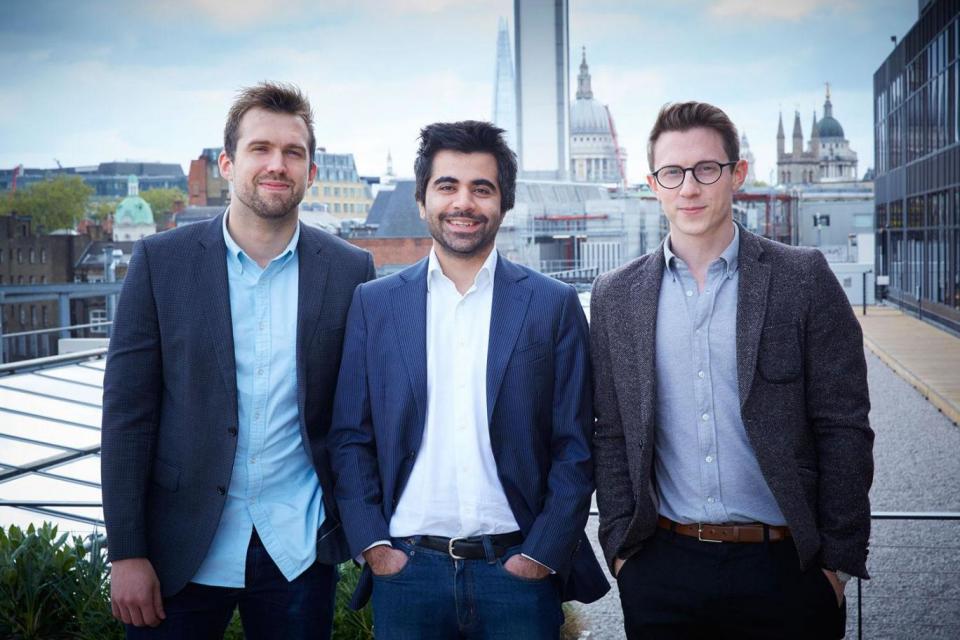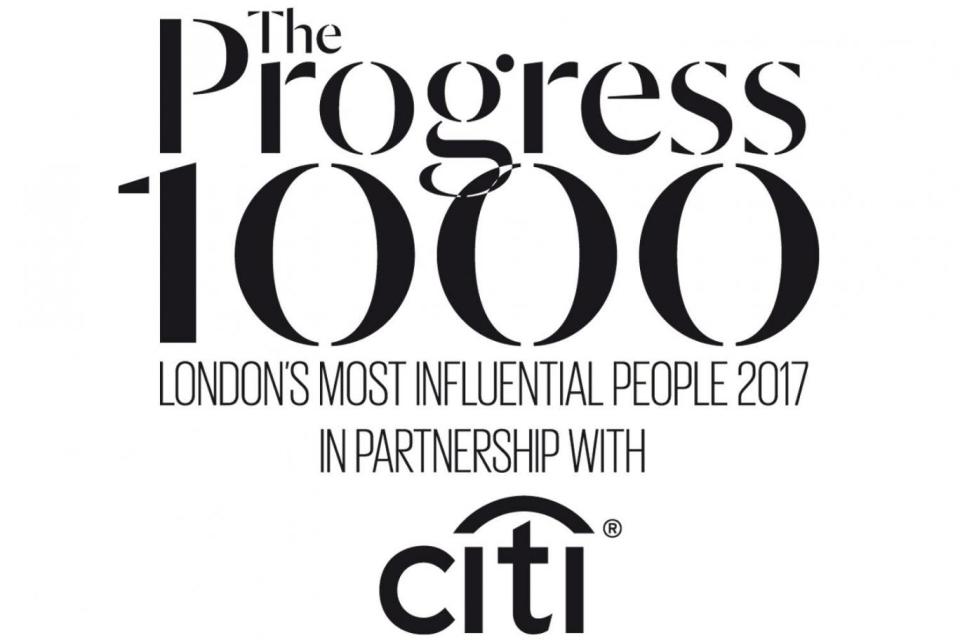The Progress 1000: London's most influential people 2017 - Boffins: Science & Technology

Jenk Oz
CEO iCoolKid
He’s met Idris Elba and Adele, given a TED talk and employs five staff. So far, so standard for a tech entrepreneur. Except Oz is only 12 and he’s been running his own business — iCoolKid, a digital platform aimed at eight- to 15-year-olds — for three years (with some help from his mother, ex-Goldman Sachs managing director Carmen Greco). The site provides a going-out guide for tweens and teens, focusing on pop culture, tech and events.
Chris Baker-Brian
Co-founder and Chief Technology Officer, BBOXX
Set up in 2010, BBOXX brings power to off-the-grid communities by providing battery-charging stations powered by solar energy. The Chiswick-based company recently signed a mega-deal with the government of Togo. In his spare time, Baker-Brian is a keen cricketer and hockey player.
Alex Bellos
Writer and Broadcaster
“I write and I talk” is how Bellos self-deprecatingly describes his job. His popular science books — Alex’s Adventures in Numberland and Alex Through the Looking-Glass — are bestsellers and have been translated into more than 20 languages. He also invented the elliptical pool-table, dubbed “an even nerdier sport than quidditch”.
Ian Blatchford
Director, Science Museum
He’s not your typical museum man — Blatchford read law at Oxford and originally became a merchant banker — but he has proved himself a top exhibitionist. The Science Museum has had a run of hits on his watch including this year’s Robots, a 500-year history of automata, and even took an exhibition on cosmonauts to Moscow. Blatchford describes himself as an “extrovert” and a “typical Leo” — “stubborn, proud, vain and charming”.
Brian Cox
TV Presenter and Particle Physicist
There might not be much competition for the title of “Britain’s best-loved physicist”, but Cox has definitely won a place in the nation’s heart thanks to his brains, brawn and barnet. Few have done more to popularise science. The south Londoner, who was a member of Nineties band D:Ream, is married to fellow TV scientist Gia Milinovich; when they met, he was an unknown academic who still slept in a single bed. Random Cox fact: he knows all the words to the musical Annie Get Your Gun.
Helen Czerski
Physicist and Oceanographer
On Twitter, the scientist and broadcaster describes her interests as “physics, bubbles, oceans, hot chocolate and curiosity”. Currently a research fellow in the department of mechanical engineering at UCL, she’s helped democratise science through TV shows like Sound Waves: The Symphony of Physics. She also recently explained how shampoo adverts — using a combination of green screens, fluorescent light tubes and hair extensions — make models’ barnets so glossy and bouncy.
Kate Devlin
Goldsmiths Lecturer
“Sex robots” are Devlin’s claim to fame. A former archaeologist who is now a senior lecturer in computing at Goldsmiths, she gave a popular TED talk on the subject in March and has a book, Turned On: The Science of the Sex Robot, coming out next year. She has done stand-up to promote science, fights to improve opportunities for women in tech and ran Europe’s first sex tech hackathon last year.
Michael Dixon
Director, Natural History Museum
Father-of-three Sir Michael has many children’s dream job: getting to spend his days among the museum’s 80 million fossils and zoological specimens. The big change for this year — a blue whale skeleton replacing “Dippy” the beloved dinosaur — has been controversial, but it is hoped this will shift the focus from the past to living science. The whale skeleton was sold to the museum for £250 in 1891.
Ann Dowling
Engineer
An expert on aircraft noise reduction, Dowling is the first female president of the Royal Academy of Engineering. Dowling’s own interest started young: as a child, she was more entranced by the electric lights in her doll’s house than by the dolls. On Desert Island Discs, one of her song choices was Good Vibrations by The Beach Boys, in reference to her work. She can fly light aircraft, though had to take a hiatus from the skies due to her workload.
Hannah Fry
Mathematician

There’s maths in everything, Fry will tell you, from how we move in crowds to finding love. A lecturer in the mathematics of cities at UCL’s Centre for Advanced Spatial Analysis, her love for maths started as a child after her mother made her work through a textbook over the summer and she came back ahead of the other children. “It became part of my identity: ‘This is Hannah, she’s ginger and good at maths’,” she explains. Fry co-hosted BBC2’s City in the Sky and has made documentaries about the mother of computing, Ada Lovelace, and Britain’s greatest invention.
Tabitha Goldstaub
Co-founder, CognitionX
Goldstaub describes CognitionX as “like a Ghostbusters hotline” for artificial intelligence because its researchers answer the big questions when you’re feeling lost. AI, she says, will one day be able to detect cancer faster than humans can and make fairer decisions in courts. The 31-year-old, who also founded Rightster to help brands make the most of their video content online, wants to ensure that women get an equal role in the AI revolution.
Demis Hassabis
Founder, Google DeepMind
A castaway on Desert Island Discs recently, Hassabis — a former chess prodigy who co-wrote the game Theme Park in his gap year — described going to Cambridge as a “holiday camp”. He got a double first. A pioneer of artificial intelligence, he co-founded DeepMind Technologies, which was bought by Google for £400 million last year — though it remains London-based. DeepMind has used algorithms to master games, beating a human champion at Go, but was embroiled in controversy after being given access to the personal records of patients by the NHS.
Anne-Marie Imafidon
Founder, Stemettes
She has the kind of CV that could induce an inferiority complex in almost anyone. A child prodigy — “It’s quite a funny way to be introduced in your mid-twenties,” she says — Imafidon passed two GCSEs while in primary school and won a place at Oxford aged just 15. Post-university, she worked for Deutsche Bank and Goldman Sachs before setting up not-for-profit enterprise Stemettes in 2013. It runs hackathons and talks to encourage more girls and young women to consider careers in STEM (science, technology, engineering and maths) subjects. It has a UK tour coming up in the autumn.
Iona Inglesby
Founder, Dot One
A graduate of the RCA, Inglesby is interested in where science and design meet. She used her DNA to make a tartan for her degree show and has now turned that idea into a business — Dot One (named after the 0.1 per cent that makes us different) takes information from a cheek swab and uses that to make a print for posters and scarves. When out of London, she works in Lapland for a polar exploration company training sled-dogs.
Paul Johnson
Director, Institute for Fiscal Studies
He’s the economist who makes politicians with a dodgy grasp of the data tremble. Johnson gives an independent, expert view on what government reforms and tax tweaks mean; ITV’s Robert Peston has called the IFS’s pronouncements “the word of God”. The IFS was criticised by Brexiteer newspapers for doom-mongering after the referendum but Johnson stands by his view that leaving the EU will inflict an economic blow on the UK.
Samantha Kingston
Co-founder, Virtual Umbrella
While working in marketing in community theatre, Kingston was approached about a job in gaming. The company, N Dreams, specialises in games for virtual-reality headsets where the player enters a simulated environment. She initially had little interest, yet was persuaded to go for an interview and quickly had the zeal of a convert for the technology. After nine months, she branched out on her own, setting up Virtual Umbrella, a firm whose raison d’être is to help businesses use immersive technology better.
Peter Lipka, Herman Narula and Rob Whitehead
Founders, Improbable

The layman’s explanation for what Lipka, Narula and Whitehead are doing is “building the Matrix”: they are running virtual worlds on thousands of machines. Their Farringdon-based company, Improbable, is London’s only “unicorn” — a start-up valued at over $1 billion.
Carlos Magdalena
Horticulturalist
The plant world’s protector, Magdalena works at Kew, nursing and cultivating endangered trees and plants. He’s even helped bring the café marron, a wild coffee plant, back from the brink of extinction. A former waiter, he arrived at Gatwick speaking little English and published his first book, The Plant Messiah (his nickname), earlier this year.
Eliza Manningham-Buller
Chair, Wellcome Trust
The former head of the spooks — she was MI5 chief — is now a crossbench peer in the House of Lords and joined Wellcome as a governor in 2008. In 1997, she was appalled to discover her cover was blown when a newspaper reported her appointment as deputy director-general — until then even some members of her family didn’t know what she did.
Tim Peake
Astronaut
Before Peake went into space, Jeremy Paxman asked him on Newsnight “but what’s the point?” Peake seemed determined to show him in his 3,000 orbits of the Earth. He ran a marathon while strapped to a treadmill, experimented on seeds growing in space and entertained his 1.6 million Twitter followers with his wit. Now back on the ground, he has written a book, Ask An Astronaut, which is published this month.
Martin Rees
Astronomer Royal
At 75, Britain’s top astronomer still knows how to cause a stir. In June, Lord Rees predicted that when humans eventually settle on Mars and other planets, their bodies will be “re-engineered” for environments where humans couldn’t yet survive — the Cybermen of space. One of his TED talks — titled “Is this our final century?” — has been watched more than two million times.
Marcus du Sautoy
Professor of Mathematics, Oxford University
The country’s most famous mathematician is also the Simonyi Professor for the Public Understanding of Science at Oxford. In his new book, What We Cannot Know, he takes on the biggest questions flummoxing us to this day: what happened before the Big Bang? Are there more undiscovered particles out there, beyond the Higgs boson? His skill is describing complicated number theory in ways the layperson can grasp.
Fran Scott
TV Presenter and Scientist
Scott likes to blow things up. The only female science presenter on Children’s BBC and the head of science demos at the Royal Institution, she calls herself an engineer at heart, despite studying neuroscience. Her new job at the RI means she’ll be dreaming up the science demonstrations for the Christmas Lectures.
Sophie Scott
Neuroscientist and Stand-up Comic
While researching speech and vocal behaviour, Scott — a Wellcome Trust senior fellow at UCL — found her second calling: making audiences laugh. In her TED talk, which has had 2.7 million views, Scott reveals you’re 30 times more likely to laugh if you’re with somebody else than if you’re alone.
Helen Sharman
Astronaut and Scientist

Britain’s first astronaut stepped into space 26 years ago. Since then she has largely shunned the limelight and now works as operations manager for Imperial College’s department of chemistry. Before Tim Peake headed for space, she gave him a book — Road to the Stars by Yuri Gagarin — and some advice: look out of the window as often as you can. She still dreams of space — thinking of how blue the Earth looks from 200 miles above us.
Beth Singler
AI & Robots Research Associate at Faraday Institute
An anthropologist, Dr Singler is your go-to woman if you want to understand the wider social and religious implications of AI and bots. In the past, she has researched Jediism and Scientology, and recently made a short film looking at whether robots should feel pain.
Slow Mo (Gavin Free & Daniel Gruchy)
Online Stars
With more than 9.5 million subscribers and 1.2 billion views for their videos, Free and Gruchy are YouTube science royalty. The duo, once school classmates, bring the fun, with 6ft water balloons, air cannons firing Maltesers and jelly tennis. They shoot all their videos in HD using high-speed cinema cameras — hence their slow-motion videos look exquisite.
Peter Smith
Blockchain Co-founder and CEO
Blockchain is the largest bitcoin wallet in the world, allowing users of the crypto-currency to store, send and receive digital assets. Smith says the company has come under pressure to move to Silicon Valley, but he and his co-founders feel London is a better place to hire staff. Smith also volunteers every week, working with the homeless.
Emma Walmsley
Chief Executive, GlaxoSmithKline
One of only six female CEOs in the FTSE 100, Walmsley was promoted to the top job at the drug maker this year, having been poached from L’Oréal’s Chinese arm in 2010. The 48-year-old studied classics at Oxford and says her four children are proud of their mother and “although she’s on a plane a lot, she makes as many school plays, matches and parents’ evenings as she can”.
Mark Walport
UK Research Chief
In February, Sir Mark was named as the UK’s new science supremo. He will become the first chief executive of the umbrella body that will oversee the work of Britain’s research councils, UK Research and Innovation, in April 2018. He has served as the Government’s chief scientific adviser for four years. His big challenge will be mitigating the damage of Brexit to the scientific community.

 Yahoo News
Yahoo News 
